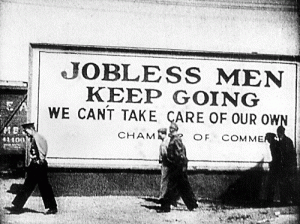 A few of us non-traditional, mold-breaker, non-conformist, square pegs in a land of round holes occasionally jokingly refer to ourselves as unemployable.
A few of us non-traditional, mold-breaker, non-conformist, square pegs in a land of round holes occasionally jokingly refer to ourselves as unemployable.
And, in certain ways that isn’t far from accurate.
If we look throughout history we find plenty of well-known business and leadership success stories that wouldn’t have been possible if those responsible didn’t push boundaries or shake a big stick in the direction of the status quo.
Yet examples like that tend to be anomalies in modern society.
As much as the concept is glamorized by prominent keynote speeches, in reality there doesn’t seem to be much tolerance for being different or thinking differently.
In the mainstream game we play in order to earn a paycheck to sustain ourselves, only the upper echelon of any given organization structure is permitted that type of behavioral leeway.
So why is it on the one side of the spectrum we celebrate, even worship innovators and brave souls that build, change and create, and on the other end, we force compliance, value complacency and foster a go-along-to-get-along mentality? The former certainly sounds more valuable to society as a whole. However the latter is more of a true reflection of the comfort zone we cling to in our contemporary work world.
That begs the question: beyond having a decent work-ethic and requisite knowledge, skills and abilities within one’s chosen occupation, what else does it take to obtain and maintain employment?
The majority of us would probably agree that most (perhaps all) final hiring decisions are primarily based on subjective criteria. Once the above baseline “qualifications” are established through analysis of objective data, all that remains are intangible factors that we process through our personal filters.
All else being relatively equal among available candidates that cross the initial threshold of proving their job-worthiness through ability, motivation, attitude and aptitude, open jobs eventually go to whoever is deemed the best fit. As in the third part of: who can do the job; who will do the job; and, who will we enjoy/tolerate working with in that job?
While the first two segments correlate to a reasonable assessment of employability, hiring decisions tend to be heavily weighted on the last part which is usually predicated on several ambiguous attributes ascertained through limited exposure.
That being the case, what DOES it mean to be employable?
From RecruitingBlogs.com.
About the Author: Leveraging her unique perspective as a progressive thinker with a well-rounded background from diverse corporate settings, Kelly Blokdijk advises members of the business community on targeted human resource, recruiting and organization development initiatives to enhance talent management, talent acquisition, corporate communications and employee engagement programs.
Kelly is an active HR and recruiting industry blogger and regular contributor on RecruitingBlogs.com. She also candidly shares opinions, observations and ideas as a member of RecruitingBlogs’ Editorial Advisory Board. F
ollow Kelly on Twitter @TalentTalks or connect with her on LinkedIn
Recruit Smarter
Weekly news and industry insights delivered straight to your inbox.






